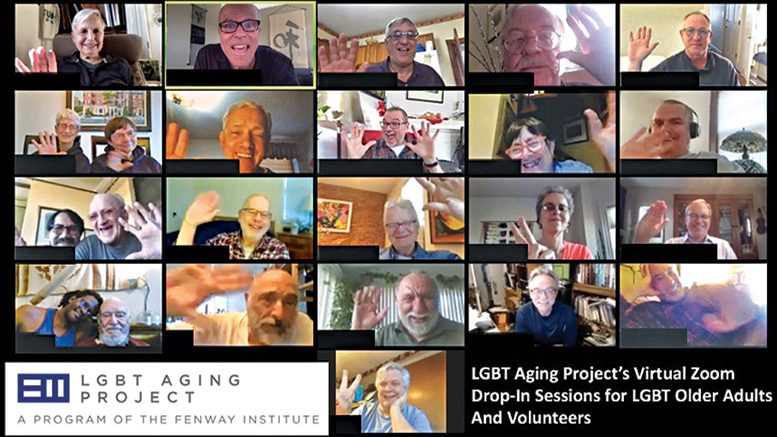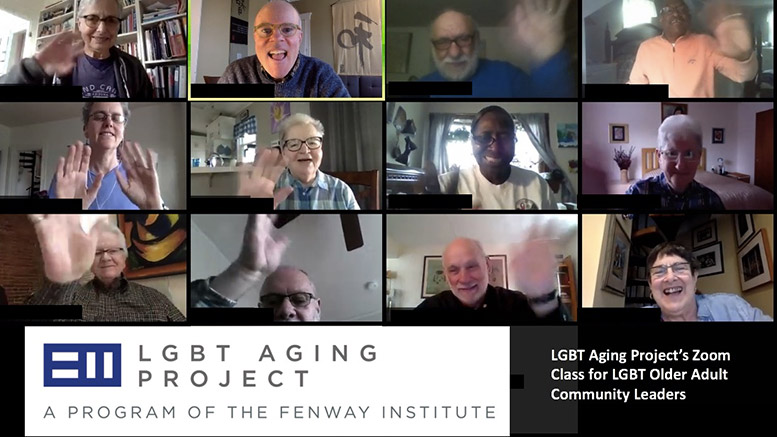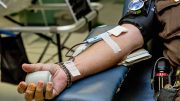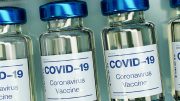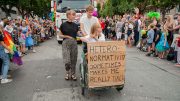Social Support for the LGBTQ Community During COVID-19 Has Been Crucial For Overall Health
By: Mike Givens/TRT Assistant Editor—
Izébel V. has devoted her time in quarantine during the COVID-19 pandemic to helping others in the LGBTQ+ community as they struggle to access social support during a time of isolation for so many.
“One of the most visible ways I’ve been supporting other members of the LGBTQ community is helping people access mental health services,” said V., a Boston resident. “If you are queer, and you aren’t wealthy enough to pay out of pocket, and you don’t have amazing insurance, you probably know how hard it is to find a therapist, even without the stress of a pandemic.”
V.’s sense of altruism didn’t begin during the pandemic, however.
“I’ve moderated a community-built list of mental health providers for the last five years, and written a how-to guide to help people access the support they need, but I know from personal experience sometimes having someone just help you go through the process, so I’ve been helping folks with that,” she said, noting that she helps assess needs, navigate the insurance process, educating others on teletherapy options across state lines, and other tasks. “If using insurance isn’t an option, and the big online therapy apps won’t work either, I’ll refer them to a queer-friendly therapist doing sliding scale therapy during the epidemic who is on the other side of the world.”
V. is part of an informal, self-mobilized group of LGBTQ+ people who take it upon themselves to provide support for those within the community who are in distress. While she helps many within the community to find local food pantries or shop for groceries, she also devotes herself to connecting others with social opportunities to combat the quarantine’s imposed self-isolation.
“I’ve also run a few series of online events during the pandemic for my community,” she continued. “One is a Zoom for telling 10-minute or less personal stories, usually with a theme: bears, ghosts, Burning Man, sexy stories. It’s sort of like The Moth, but less practiced, and with more room for audience reactions and feedback. They’ve been open to anyone, but my community is predominantly queer, so the event is predominantly queer. It’s great seeing people have a way to connect with each other and laugh with each other right now.”
Then, every few weeks, there’s Femme Fusion.
“At Femme Fusion events, I bring together queer femme DJs from all over the United States, Canada, even Spain who play music together during the same set,” she said. “It’s sort of like a DJ battle, but instead of being competitive, the DJs are chatting with each other on the platform, supporting and complementing each other, sending each other silly gifs. It’s a great vibe that I think we strike every time because it’s queer femmes. Attendees can interact with each other and the DJs on the chat or the music platform as well, or join a Zoom dance party. People will ask each other to dance across Zoom and send hearts with their hands across the video to say thank you. And we’ll inevitably have people bring out their stuffed animals, especially stuffed unicorns, and be silly across the Zoom video windows dancing and waving them at each other.”
Former The Rainbow Times guest columnist, Just JP, a Boston-area drag performance artist, and community advocate, said they have done their best to support local nightlife performers and producers who have lost income due to social distancing guidelines and the closing of venues.
“It was a quick and complicated transition from venue-based nightlife to online drag, as most folks lost income while having to purchase equipment and learn new skills. It’s hard to thrive when we’re barely surviving,” they said. “Some performers took the lead and started new recurrent shows, like Biqtch Pudding’s ‘Digital Drag;’ some others adapted their production process to keep posting consistent content, like Face Down Queens’ ‘Fashion Photo RuFlu.’
“Some others started hosting their regular gigs on platforms like Twitch and Zoom. Some examples are The Vixen’s ‘Black Girl Magic,’ Onyx, Pulp, and Zayn X’s ‘Shade Range,’ and Violencia Exclamation Point’s ‘Serve Mondays,’ which follows the spirit of its predecessor project ‘All-Star Mondays,’ being a show that welcomes all types of performance and you can apply through their social media.
Nightlife and entertainment aside, JP also provides the standard modes of support to friends and members of the community like checking in on friends who strictly adhere to quarantine guidance, grocery shopping, and other errands.
Mason Dunn, former executive director of the Massachusetts Transgender Political Coalition, said that he and his tight circle of friends have set up a unique collaborative, providing each other with not only social support but also culinary cuisine.
“We’re a small group of friends, and queer pseudo-family, from all very different backgrounds and experiences,” Dunn said. “We normally spend quite a bit of time together, but this quarantine has changed that. Rather than let that get us down, we’ve fired up our ovens and mixing bowls, to provide delicious treats for each other while we’re apart.
“Every few weeks, unprompted and unannounced, someone from the group delivers some kind of treat, from a responsible social distance. Cakes, cookies, rugelach, homemade pickles, bread of all different types, and varieties have all appeared on our doorsteps. It is all completely random, spontaneous, and driven by love. With the exception of Joey, who is a professional cookie baker, we’re all amateur bakers and cooks, some of us trying recipes for the first time. The show of love from our queer family, mixed with a splash of something new and exciting, has been a recipe that has helped feed our souls during this difficult time.”
More Formal Forms of Support
JP works at The Network/La Red (TNLR) an LGBTQ nonprofit serving survivors of domestic violence. With an increase in domestic violence incidents due to more couples self-quarantining together, their job has been to consistently share resources for those looking to flee abusive relationships.
“A lot of my work has been curating a social media feed, alongside one co-worker, that speaks to survivors and their experiences, acknowledges what’s going on, like COVID-19 and Black Lives Matter, advertises our services, and shares resources that are useful and align with TNLR values,” they said.
Julie “Jinx” Nowak, LGBTQ+ initiative coordinator for BayPath Elder Services, said that the elder services provider transitioned into online meetups to help elders stay in touch during the pandemic.
“We moved our Pathways events, which welcome LGBTQ+ folks and significant others, family, friends, and allies (SOFFAs) online, using the Zoom platform,” she explained. “This has allowed us to stay in touch with everyone who has been attending our in real-life events and also has helped us reach isolated elders who have been searching for online gatherings during lockdown to fill the sudden gaps in their social lives.
“Most of our guests come from the MetroWest area, but as always we do welcome folks from farther away. Now we even have a couple of people who check-in from upper New Hampshire.”
Baypath also implemented a weekly virtual coffee hour for seniors as well as a ‘bring your own lunch’ gathering that allows seniors to socialize with LGBTQ+ high school youth. Soon, in response to a number of requests, Baypath will create a virtual “artspace” for seniors to work on art projects while socializing with one another. The virtual nature of interactions has also helped staff at Baypath more easily network with colleagues in the eldercare sector.
“We’ve been delighted by how easy it’s become using Zoom and FaceTime to talk with colleagues at other agencies,” she continued. “Our growing network of outreach folks working with LGBTQ+ older adults has been sharing ideas and ‘signal boosting’ events for one another for years, but suddenly we’re able to just “drop by for a visit” online to really talk through ideas and discuss challenges and share tips about what’s working well with our various groups.”
Group activities also allow for mass showings of a documentary highlighting the risks faced by LGBTQ+ elders.
“Interested groups can arrange for an online showing of ‘Gen Silent,’ a powerful documentary following the challenges, fears, and triumphs of several LGBT elders in the Greater Boston area,” Nowak said, mentioning that she facilitates a guided discussion following the film. “‘Gen Silent’ is a good way to introduce groups to the often-hidden world of LGBT elders, and spark productive conversations about various ways to make a venue more warmly welcoming.”
The Fenway Institute’s LGBT Aging Project has often screened “Gen Silent” to help encourage conversations around the concerns of aging in the LGBTQ+ community. Bob Linscott, assistant director for the project, said that his organization has also mobilized to support seniors during the pandemic.
“The LGBT Aging Project has a new LGBT Senior Advisory Council, which is an ad hoc team of community members who came together during the pandemic to help mobilize our community,” he said. “This group, which is made up of half a dozen LGBT older adult volunteers, set out initially to offer basic beginner classes for Zoom. We wanted to help older adults get over any barriers with technology. The main focus of our beginner Zoom classes was to help get folks to feel more comfortable using video chat platforms like Zoom so they could use them on their own. Ultimately we wanted to give folks a new way to connect with one another since meeting in person was no longer possible during the pandemic.”
As the pandemic has progressed, so has the LGBT Aging Project’s Zoom program.
“In the weeks since the pandemic began we are now offering more opportunities through Zoom,” Linscott said, noting that the Zoom program will continue even after the pandemic is over as some seniors will continue to self-isolate given concerns over their health. “The LGBT Aging Project has a weekly drop-in group for LGBT older adults every Monday at 11:30 a.m. That has been nice for people to know we are there and that they can just jump in and talk with other people. The Aging Project is also hosting two LGBT bereavement groups that are run through Zoom. These are important services because the pandemic is really bringing up the pain of past losses and not allowing people to come together and support one another in person during times of grief.”
The project also has an all-volunteer group of wellness ambassadors. Linscott said, “we have another group of volunteers from all over the state who have been making wellness calls to check in on our home-bound LGBT elders. We wanted these folks to know they are not forgotten and we also wanted a formal means to check in and see what the current concerns and needs are in our community of seniors. In addition to asking folks about their immediate needs, such as groceries or medications, our volunteers are asking if they are able to connect to the internet and if they have devices like a smartphone or computer to join in video calls. Equally important to this critical service, the volunteers have friendly conversations with folks.”
Feedback has been quite positive, according to Linscott, who said he even had one elder tell him, “This call turned a very bad day into a very good one.”
Licensed mental health counselor Carla Rosinski said she’s had an equally satisfying experience as a volunteer.
“At first I was worried about making ‘cold calls’ to people and feeling like I may be intruding on their time, but I have been met with deep gratitude and acknowledgment of how important it is for us to connect with other people in our community,” she said of her volunteer work, which provides her an opportunity to give back to previous generations. “We have been able to help meet some essential needs by either connecting folks with resources or even doing a quick trip to drop off some groceries ourselves. But the biggest need has been just having someone to connect with during this physical distancing time. It has also been reassuring to know that most of the people we are calling are doing well and have strong support systems in place.”
Rosinski also said that the calls are a great reminder of past struggles for LGBTQ+ people.
“At the beginning of the pandemic when we started making calls, I heard several echoes [of] the HIV epidemic and the feeling of having already survived a global health crisis when so many others did not,” she said. “Though there are many ways this is not and has not been the same, it makes sense that memories of the last time there was an invisible threat and limited information would be so strong in our community right now.”
A sense of self-care and an appeal to her conscience drive Meredith Bradfield to continue her volunteer phone check-ins.
“Every week, I have two days where I make calls and at least one day in which I check in with a team of other volunteers,” she said. “Aside from pushing me to start conversations with new people on a regular basis, it has also given me some professional development opportunities as I elected to take on more responsibilities for my team. It’s easy to feel a paradoxical kind of listlessness and restlessness during these difficult times, and volunteering helps restore a sense of purpose.”
VinFen, a health and human services nonprofit, provides mental health programs and resources throughout Massachusetts and Connecticut for those living with mental illness, developmental issues, or traumatic brain injuries. Eli Plumb has been a volunteer with the organization for a little more than a year now, specifically with a support group for LGBTQ+ adults over the age of 18. Up until May 19, the group met in Plymouth, Mass., but was transitioned into a virtual meetup via Zoom due to concerns over the pandemic.
Plumb considers the Zoom meetings a lifeline that help him navigate the pandemic.
“Being able to see the faces and hear the voices of other people in my community has been so helpful in making me feel less alone in this isolating time,” he said, highlighting that as a facilitator he benefits from the group just as much as any other participant. “I feel that it’s important to have mental health resources like this for our community. LGBTQ+ individuals are more than twice as likely to experience mental health issues during their lifetime as straight people. I know there are many people who have been stuck at home with homophobic and transphobic [families].
“I know that there are young adults who had to leave college and move back in with parents who misgender them. Community has always been one of our most important resources as queer people, so to have that taken away in many capacities has been very detrimental to the health and morale of many of us. I’m honored to have the ability to open an hour a week from 2 to 3 p.m. every Tuesday where we can come together, especially during Pride Month.”
Just JP also said that the concept of community will be all the more important for everyone as the pandemic continues and eventually subsides.
“COVID-19—or Mx. Rona if you’re queer—is redefining the way we move around the world, and we won’t be going back to ‘normal’ for a while,” they said. “As we figure out how we best live our lives, and what risks we’re able to take, it’s okay to make decisions that center your health and wellbeing. I encourage [everyone] to think about [their] decisions, how [they’re] making decisions, and what privileges [they] have as they may influence the choices [they] make or the reasons behind them.”

